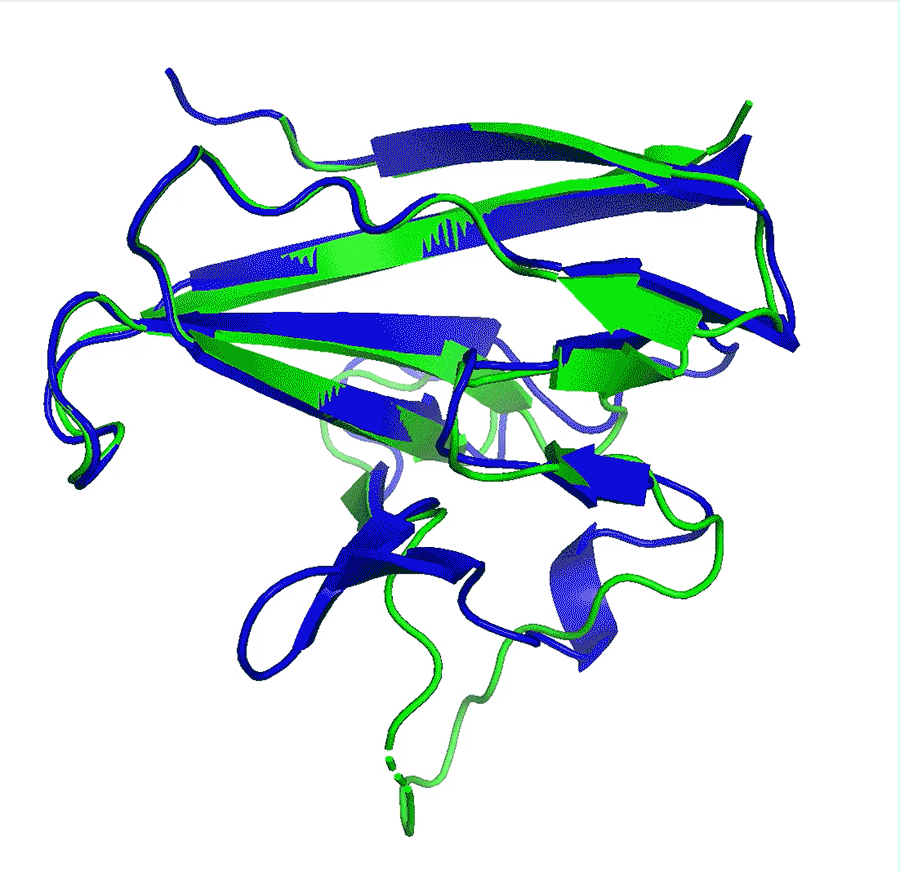Biochemistry – Page 7
-
 Research
ResearchProtein-shaped sweets help students understand complex molecular structures
Edible protein models that can be identified by mouth could make chemistry education more inclusive to blind and visually impaired students
-
 Opinion
OpinionMabel FitzGerald and the mystery of oxygen sensing
Katharine Sanderson celebrates the tenacious and brilliant researcher who came tantalizingly close to describing oxygen sensing, a concept that earned the Nobel prize over 100 years later
-
 Research
ResearchBlocking bacteria’s self-poisoning mechanism weakens their antibiotic resistance
Stopping bacteria from producing hydrogen sulfide in response to drugs could help overcome antimicrobial resistance
-
 Opinion
OpinionFurin fundamentals
There’s no direct evidence for the lab leak hypothesis – and the biochemistry of the virus might not tell us much about it
-
 Research
ResearchBiochemical mystery unfolds as elemental metals found in Alzheimer’s patients’ brains
In a discovery that raises more question than it answers, researchers have found zero-oxidation-state iron and copper deposits inside amyloid plaques
-
 Research
ResearchNew class of biomolecule baffles scientists
GlycoRNAs found across several cell types and organisms
-
 Research
ResearchChloroplasts enhanced with artificial dyes adsorb more solar energy
AIEgen-modified chloroplasts can adsorb ultraviolet radiation and increase the efficiency of photosynthesis
-
 Opinion
OpinionFree radicals for post-translational modification
A technique for forming new carbon–carbon bonds at specific sites in proteins
-
 Opinion
OpinionExploring the potential of nanoarchitectonics
Combining self-assembly techniques from across scientific disciplines could allow us to precisely build any material structure
-
 Feature
FeatureGetting to the root of soil nitrogen
The farming industry’s reliance on nitrogen compounds is altering the environment, but Ian Le Guillou finds a better understanding of the interplay between plants and microbes could help to reduce the impact
-
 Opinion
OpinionRewards based on priority drive unnecessary competition
The story of Crispr illustrates how a focus on patents and publications can cause good people to act in unsavoury ways
-
 News
NewsOxford University to open antimicrobial research centre after £100m donation from Ineos
Petrochemical giant highlights dangers of antibiotic resistance
-
 News
NewsDecoding the virus – what we know about Sars-CoV-2 a year on
Scientists have never learnt so much about a pathogen in such a short time
-
 Research
ResearchGoogle’s AI aces protein prediction competition
Deep-learning network AlphaFold2’s perfomance at predicting how proteins fold has caused great excitement in the scientific community
-
 Feature
FeatureHow does a cell know what kind of cell it should be?
Philip Ball investigates how cells use condensed ‘blobs’ to collect the molecules involved in regulating genes
-

-
 News
NewsFirst draft of the human proteome created
High quality data for more than 90% of the proteins in the body will aid medical research
-
 Research
ResearchEntirely new way of sensing iron discovered in bacteria
Novel class of riboswitches can directly and selectively sense iron
-
 Feature
FeatureEngineering a handshake for proteins
Once considered undruggable, chemists are beginning to grasp protein–protein interactions, according to Ian Le Guillou
-
